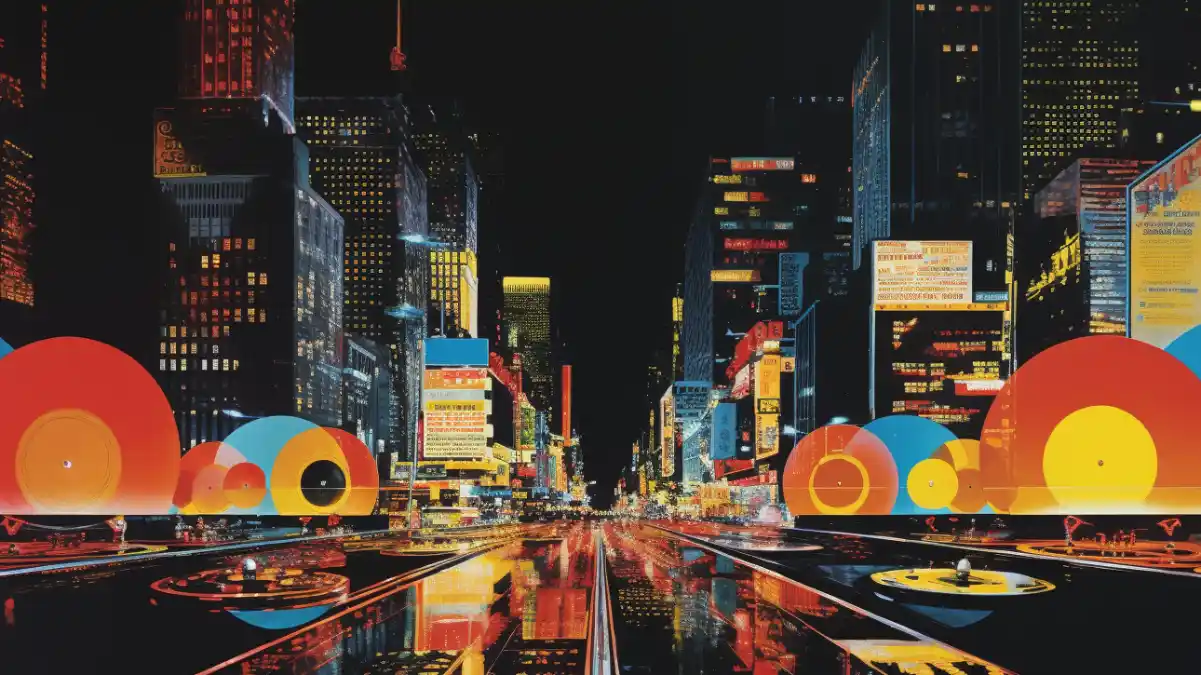Why was disco music popular?

Picture this: the glittering 1970s, a time when the air was electrified with a musical revolution that sent propelled bodies into an unstoppable dance frenzy. Disco, the intoxicating phenomenon that ruled the era, didn’t just stumble into popularity – it strutted in, dripping with seductive appeal. Beneath the shimmering surface of its infectious beats, a complex web of influences were coming together to create its story.
Society was in an uproar, with new technologies, radical cultural movements, and a shifting demographic landscape changing the game. And right in the heart of this chaos emerged disco – a music genre that didn’t care about age, race or language barriers. It didn’t just commandeer the airwaves; it sunk its roots deep into our souls.
But why did disco become so popular? Let’s get down and boogie as we uncover the multitude of reasons that propelled disco into nightclubs and living rooms across the globe.
Danceability and Infectious Beats
Disco’s pulsating rhythms and catchy beats made it incredibly danceable. Its infectious energy and groove-oriented sound compelled people to hit the dance floor and let loose.
Social and Cultural Shifts
The rise of disco coincided with a period of social and cultural transformation in America. It provided an escape from the political tensions of the time and served as a unifying force, bringing together people of different backgrounds, races, and sexual orientations in disco clubs.
Inclusive Atmosphere
Disco clubs fostered an inclusive atmosphere where individuals from marginalized communities found acceptance and freedom of expression. It became a safe space where people could be themselves, breaking barriers and promoting equality.
Studio Production and Technological Advancements
Disco music showcased impressive studio production techniques and embraced emerging technologies of the time. The use of multitrack recording, synthesizers, and innovative sound processing created a polished, sonically rich sound that captivated listeners.
Producers like Giorgio Moroder and Tom Moulton pioneered the use of 12-inch singles and extended mixes, which became a defining feature of disco music. These extended versions were designed for club play and allowed DJs to seamlessly transition between songs, keeping the dancefloor packed and the party going.
Mainstream Media Exposure
Disco music received extensive airplay on radio stations, featured prominently in mainstream television shows, and gained significant attention in films like “Saturday Night Fever.” This exposure helped solidify its popularity and made it accessible to a wide audience.
Fashion and Style
Disco’s influence extended beyond music and permeated fashion trends and style choices. Glittering outfits, platform shoes, and extravagant hairstyles became synonymous with the disco culture, adding to its allure and creating a distinct visual identity.
But the impact of disco’s fashion transcended mere trends; it became a powerful expression of self, a flamboyant rebellion against societal norms. The disco scene became a playground of experimentation, where individuals adorned themselves with unabashed audacity. Disco fashion was a testament to the unapologetic desire to shine, to be seen, and to defy the dullness of the everyday.
Escapism and Fun
Disco offered an escape from the challenges and stresses of everyday life. It provided an opportunity to forget one’s worries, immerse oneself in the music and atmosphere, and simply have fun. Its carefree spirit resonated with people and provided a sense of joy and liberation.
It’s impossible to ignore the seismic impact that disco music left in its wake. Disco, with its irresistible beats, outrageous fashion, and rebellious spirit, was more than just a genre – it was a cultural force that challenged norms and created spaces of liberation.
Its infectious rhythms and unapologetic hedonism united people in a dancefloor revolution that defied societal norms. Disco faced backlash and a premature demise, but its legacy lives on, influencing subsequent genres and reminding us to embrace our individuality, let loose, and dance like nobody’s watching.
Your comments
What do you think? You can use Markdown formatting in your comment.